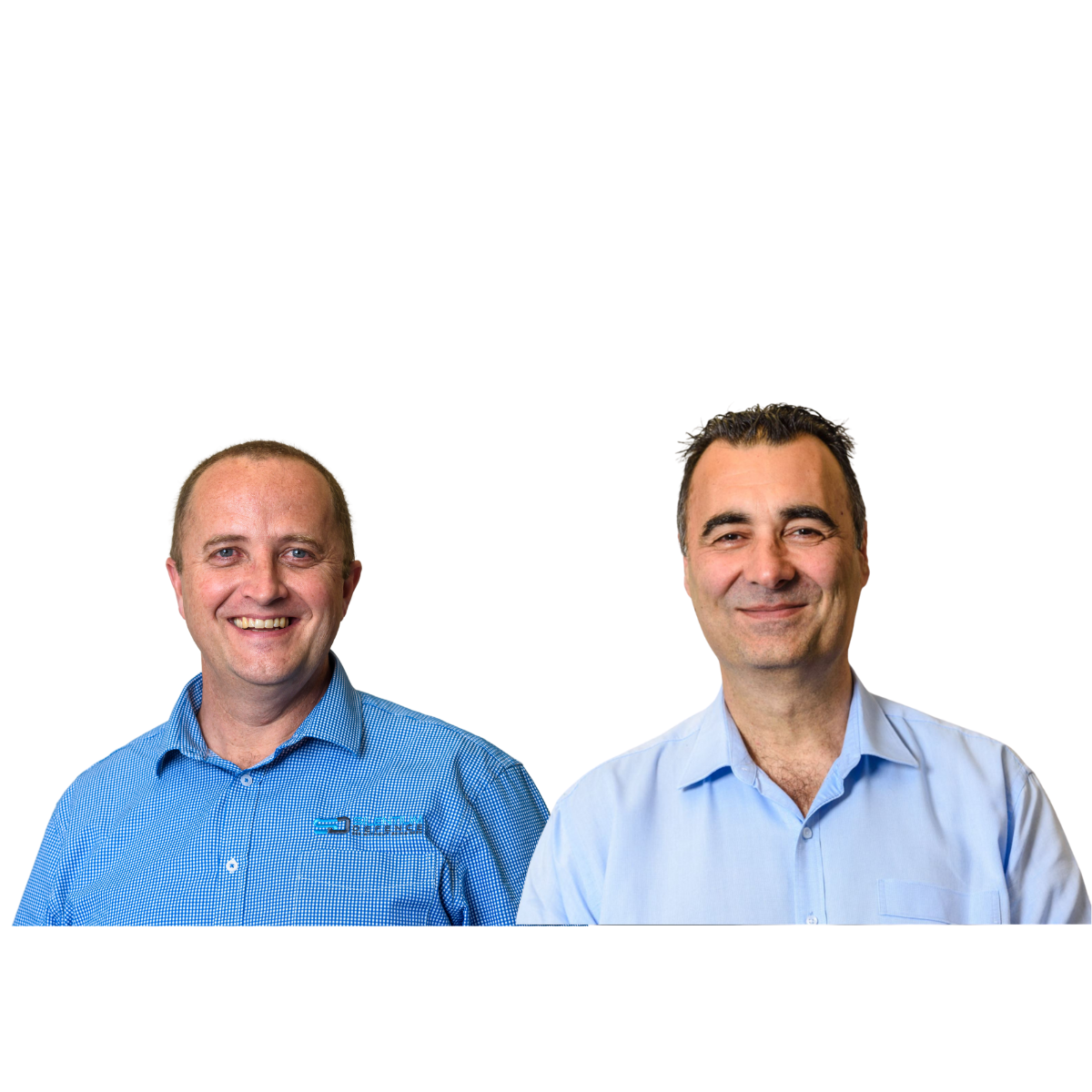On International Women’s Day 2023, we sat down with STEM Superstar Mars Buttfield-Addison to talk all things building careers in STEM, ‘breaking biases,’ and creating equality.
It was a wonderful, honest and insightful conversation, full of practical advice and lived experience.
We hope you enjoy the Q&A and, as we have during Mars’ internship with Silentium, benefit from her infinite wisdom!
Q: Hi Mars. Can you tell us a bit about what you’re working on at the moment, why you’re excited by it, and why it gets you out of bed in the morning?
I like to be busy, so have a whole lot of jobs, spanning my PhD and contract work and interning and many temp roles. In most of these, I work on some aspect of space domain awareness—developing solutions for monitoring the orbital environment and debris mass so that we can ensure satellite technologies remain feasible for future generations. 
This means writing code for really cool radio telescopes and radars, that run on really cool supercomputers. It feels very cutting edge, and I love working in an aspect of technology that feels like it has significant real-world impact.
In my other roles, I am a communicator and advocator for STEM opportunities. In this capacity, I do a lot of public speaking and teaching and outreach and working with school programs and developing teaching materials that help others teach technical concepts to people of all ages. I like how this complements my other work, where I make technologies, by then working to ensure equitable access to technology and informing people of its risks and benefits so they can make best use of it.
And where my other work is sometimes very impersonal—often working in small teams or solo, for systems far away, and whose impact will only be seen in the long-term—this is very human and allows me to see more immediate impacts, for example, when someone chooses an avenue of study because of something I’ve said or does well in a course I’ve taught.
Both of these topics are so important to me, and I am so lucky to be able to work on a huge range of projects that keep my day-to-day tasks creative and interesting.
Q: What attracted you to a career in computer science? Do you ever remember a time when you thought, ‘this world is not for me?’
My decision to go into a STEM field was well-considered; I had always been best at science and maths topics at school and found the idea of fields where problems had somewhat objective “correct” solutions very comforting.
I like well-defined roles and expectations and being able to quantitatively measure success. But my decision to go into computer science was almost an accident. I returned to university in my mid-20s after many years in varied roles across import/export, liquor and gaming, hospitality, and more. When I was picking a course, I knew so little about each option, or university study in general, it was basically a random selection.
I picked Computing because my brother, who was a teenager at the time and really didn’t like school, had shown some interest in computers, and I had always liked video games, and I remembered enjoying fiddling with MySpace layouts when I was a teenager. So even though I had never written a line of code in my life, I went into ICT.
It’s lucky I immediately loved it, or the fact that every class I was in was full of boys many years younger than me who had somehow been programming for a decade, might have scared me off. And many years later my brother did go into the same degree, but thought programming was the most boring thing in the world and now does bioscience instead. Go figure.
Q: You’re a pretty inspiring figure in your field – breaking barriers and sharing knowledge to move everyone forward – why do you think it’s important to invest in the people that make breakthroughs, as much as the research or technologies that enable them?
Humans are social creatures, and we are made to do more than work. To be our best, we need to feel connected to and supported by and enriched by others around us, and to not be made to feel like job performance or output is our only way of providing value.
We need a certain level of autonomy, but also to not always feel solely responsible for outcomes. That makes two things so important for people to thrive: opportunities for connection—whether that be working in effective teams or being exposed to examples of successful people working in our field—and a work environment where they feel comfortable failing sometimes, that people are accepting of it and timelines account for it and it is celebrated as a necessary part of progress. Investing in a person’s overall wellbeing is the best way to foster creativity and innovation.
Q: What’s been the proudest moment in your career (or journey) to date, and why?
I suppose I should say one of the awards I have won or something, but it’s actually probably the first time I saw a student graduate that I had taught. It’s nothing to do with my own work, but I was at a graduation ceremony and I happened to run into someone I had taught in their first year of university—when I was in my second year of university, which they don’t usually let you do but I guess they had run out of people to teach this particular course’s practical classes—and she remembered me and was getting her Bachelor degree. I just hadn’t really thought about it before, and it made me really proud to think I had a hand in this person who was going to go off and make a place for herself.
In the many years since, I have often run into students of mine and they are always excited to see me and always full of compliments, and always doing such awesome things, and even though I know it had so little to do with me, I just am so invested in their success. It’s extra silly when you think about how I usually taught AI 101 or Intro to Data Science and they are always the classes people find so boring or difficult, but so many of my past students have told me I played a big part in their feeling like they belonged at university, or in their feeling like they could be happy and enriched in a tech career. That was exactly what I wanted to achieve.
Q: Who have you looked up to? Do you think role models have an important part to play for women in our industry, and, if so, why? What might your journey have looked like without role models, their support or inspiration?
I have been impacted and supported by so many people over the years. Almost all of them have been women playing roles where they spent every day propping up vulnerable people who were at high risk of failure.
When I was a child, it was my family members—my mother, my favourite aunt, my great-grandmother. When I was in school, it was particularly engaged teachers who directed me towards competitions and extra-curricular development opportunities. When I considered university, it was the Degree Co-ordinators for the Pathways Program and then ICT who stopped me when I tried to talk myself out of trying things that were unfamiliar. It was fiercely smart lecturers who led double lives as advocators and doing outreach. In the tech industry, it is key ethicists and policymakers who work to keep people safe from technology-related harm. All of these people have been women who worked especially unrewarding jobs and somehow managed to still be kind and humble at all times.
I aspire to that kindness and patience and empathy, though I also recognise how unjust it is that not one of these people has been especially celebrated for the work they do. It would be totally fair for any one of them to pack it in one day, leave people to inspire or protect or support themselves, and go on to roles where their efforts and impact are better recognised. But without them, I would probably have failed or given up a thousand times.
Q: Why do you think women and girls are so underrepresented in fields like yours? In your experience, what are the key ingredients that build passion and a clear pathway to a career in STEM?
Research would say it is a confluence of factors. One aspect is that STEM careers are unforgiving of things like career gaps or extra-curricular duties, which predominantly affect women. Another is highly competitive industries that limit success only to those who are very comfortable and proficient at self-promotion, which are more likely to be men. Some of it will be reinforcement—fewer women being in STEM or working for a particular company leads others to worry there might be a good reason, or that they won’t find themselves as accepted there—even if that stereotype is decades out of date.
In my experience, the people who have thrived in STEM how it is, are often just lucky or privileged. The same is true for any high-pressure competitive domain. People succeed when they have great support or investment from the people around them, or they were in a position where they were allowed to fail sometimes, or they stumbled onto great opportunities, or they’re too stubborn to accept any outcome other than success. Forgetting that is a great example of the survivorship bias that dominates the “skilled industries”. So, I think the key ingredient is people taking on the role of being that support for people who don’t have their own—that means passionate educators and workplace mentors and financial support programs and widespread empathy for others.
Q: You do a lot of work with school students, building practical understanding of what STEM careers can look like and how to pursue them – what’s inspiring you most about the young people you work with in these roles?
Speaking to young people is a thing I focus on for a similar reason to why we strive for diversity in the workforce: because talking to different kinds of people helps you grow as a person and keeps you on your toes. Different people have different ideas and priorities and prompt new ways of thinking. In school outreach it is presented as being very one-sided: philanthropic personalities take time out of their day to go talk to children for their sakes. And it is true that people in that sphere are somewhat satisfied by the idea that they might improve someone’s outcomes or contribute to a better workforce in the future. But really, it’s just a load of fun.
Kids ask great questions— “what would happen to the Earth if the Sun suddenly disappeared?”—and tough questions— “why do we experiment on animals when we could use humans?”—and the way that kids nowadays handle all that they do while also growing up with full awareness of global issues like COVID and climate change… they’re amazing. When I was their age all I cared about was video games and homework. So it’s just a great reminder to be curious and not to every accept something just because it is the norm.
Q: What else can we all do, day to day or in the early years to help girls and young women find their place in STEM?
Acknowledge our shortcomings. When it comes to complicated issues like gender disparity it’s uncomfortable to think about, especially when we mean well but don’t feel empowered to do so—so many gendered issues arise from systemic, socio-cultural inequalities that no individual can change alone. But the little things make a huge difference: being a supportive family member to a woman who is juggling care duties with work, being a great friend who helps write promotion applications or psychs them up when they have to do embarrassing self-promotion, enabling women in your workplaces to succeed by inviting them onto projects or connecting them with opportunities to up-skill or network.
This is necessary because so much of career success comes from those invisible bonds that people naturally develop to people most similar to them. When someone like you performs poorly, you’re more likely to empathise; when someone like you has aspirations, you’re likely to understand and want to help; when someone like you is looking for connections, you probably know other people just like them they’d get along great with. It takes conscious effort to extend those courtesies beyond what our internal lizard brain does autonomously, which is why homogenous teams stay homogenous.
Q: What does International Women’s Day mean to you?
As an event and awareness campaign I think it is super important. It has a strong history woven through feminist and labour movements that brought equality to aspects of life from working conditions to property ownership and voting rights and is responsible for many advances in related issues such as the broader labour movement and anti-racism. Events like these are a constant reminder to re-evaluate equality in all aspects of life and that solidarity is the best resource we have to ensure a better quality of life for everyone.
As a practical thing, myself, and all of the women I know have extra commitments this week. We spend a lot of time presenting talks and helping with campaigns and writing articles and doing interviews and end up very tired by the end of it, and in many ways, it can be kind of confronting to talk about a bunch of factors you try not to dwell on the rest of the year. It makes sense that this event causes mixed feelings; it is a celebration but also a protest, and it has roots that are both positive in the change that it has driven but also negative in the way it highlights the remaining issues faced by women around the world.
Q: As a female building your career and profile, have you ever experienced bias? (positive or negative) and what impact did it have on your choices, confidence, and opportunities? How do you recognise bias and do you have any advice on how to approach or challenge it?
I am a woman, but I am also many other things. I was the child of a single teenage parent, I grew up with an autism spectrum disorder, I come from a low socioeconomic background, and I’m a big awkward nerd. So, I can identify many opportunities that have arisen from these that would constitute a positive bias—such as being able to take part in gendered programs such as Superstars of STEM—but negative biases are often harder to isolate.
If a doctor dismisses your symptoms and denies you care, it could be a gendered bias or it could be a lack of knowledge. If you get passed over for career advancement a lot, it could be a gendered bias or it could be you haven’t assessed your own performance as well as you thought. If people talk over you all the time or devalue your expertise, it could be a gendered bias or maybe you’re not projecting enough confidence or you’re just having a personality mismatch with that one person or any number of things. In some way, that is one of the reasons that discriminatory behaviours go unchallenged, because it is so rare you can point to something and go “yeah, that definitely happened to me because I am a woman and for no other reason”, even though we know from long-term population-level studies that those things are common.
So, for many people bias manifests as constantly having to work extra hard and never knowing if unmet goals were their fault or not, and then everyone around them wondering why underrepresented groups end up over-analysing their performance or having anxiety issues or being prone to unprompted overwork and subsequent burnout.
For me, I think the best change I have made to avoid, recognise, and counter bias is to surround myself with a supportive and diverse team of colleagues. I collaborate with other freelancers in my area, and I have formed teams at each of my workplaces, made up of people who have varied skills and experience and who fundamentally respect and support each other. My team is my sounding board, my cheer squad, my rubber ducks for debugging, and we help each other work toward both career success and job satisfaction in equal parts.
Q: What advice would you give to young women or early career entrants looking to pursue a career in STEM?
Devise your own criteria for success. Going into a highly competitive field can be a whole lot of fun, working on solving problems with cool tech and cool people, but it can also be a lot of politics and weird metrics and workplace ego. Imposter syndrome is widespread in STEM fields, even at the highest levels, and it’s easy to forget your own accomplishments. So, surround yourself with tokens of things you are proud of having achieved and document goals you can look back on.





